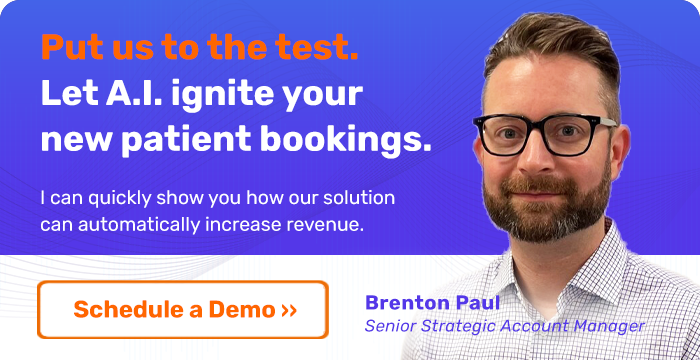September 2020--During the summer of 2020, DSO Hygiene Excellence founders Sarah Varney and Christine Diehl sent out a national survey to DSO leaders and DSO dental hygienists to gain insight into the challenges and opportunities facing hygienists today.
Only 27% of the hygienists who responded felt a strong sense of community within their dental support organization. A quarter of the respondents didn’t feel any sense of community.
Varney and Diehl hope to change that. They founded DSO Hygiene Excellence, a national organization for dental hygienists who work in group practices. The organization focuses on providing networking and support for hygienists, sharing best practices, and helping hygienists increase their skills in five areas as part of a diplomat certification program: leadership, diplomacy/teamwork, dental/medical synergy, clinical excellence, and business excellence.
In a series of videos with Patient Prism CEO Amol Nirgudkar, the co-founders share how hygienists can transform their career, enjoy personal and professional growth, get paid what they’re worth, and align their goals with the DSO.
Dental Hygienist Careers in a DSO
Typically, 80% of doctor production comes out of the hygiene chair, said Sarah Varney. The hygienists play a vital role in the health and growth of a dental practice.
When hygienists elevate their leadership skills and develop strong relationships with patients, doctors, and team members, they increase patient loyalty, treatment acceptance, and team morale.
One of the first steps to having a fulfilling dental hygienist career at a DSO is to embrace the tools that groups often have to promote better patient outcomes.
Hygienists can deploy diagnostic tests like oral cancer screenings and periodontal probing, and decay prevention techniques such as fluoride varnish, to improve the health of their patients.
Another key to success is learning how to communicate what you see to your patients, ensuring alignment with what the doctor will diagnose.
“If you see that their gums are bleeding, you should be talking about risk factors for periodontal disease and the oral-systemic connection,” recommended Sarah Varney. “If you don’t treat that disease, then it can hurt them and their overall health. You want to provide optimal care and produce the best possible outcome for your patient. Think about what treatment you would recommend to your mom and recommend that to your patients. Don’t let fear of cost stop you from recommending the appropriate treatment.”
“I often use the intraoral camera to take pictures,” said Christine Diehl. “If I see an old amalgam filling that’s leaking or a bad crown margin, I’ll highlight that and let the patient know that I’ll have the doctor take a closer look. If I notice decay, I’ll tell the patient that I’m noticing some softness in the tooth. When the doctor comes in, I can alert her or him to what I’ve shown the patient.”
By co-diagnosing and promoting the best clinical care options, hygienists can become powerhouse producers, which increases their compensation and improves patient outcomes.
- Video: Increase Positive Outcomes Through Hygienist / Doctor Alignment
- Video: Turn Your Hygienists Into Powerhouse Producers
- Video: Transform Your Hygienists Into DSO Practice Leaders
- Video: Inspire Hygienists to Fill Your Doctor Schedule
How Much Do Hygienists Make?
“It’s definitely possible to make six-figures in the DSO space,” said Varney. “You need to be a leader. You need to get engaged with the vision of your DSO and the vision of your practice. You need to understand the practice’s goals and what metrics define success for your hygiene department. You need to be comfortable selling treatments that will make your patient healthier, improve their oral health, improve their systemic health, and improve their lives.”
While hygienist compensation is typically based on production, there are other metrics that should influence a hygienist’s salary, said Diehl.
“Patient retention and patient reviews are both good metrics. Ask your patients to refer friends and family. Identify overdue patients and make calls if you have open chair time. Those all increase your value to the practice and help ensure you get paid what you’re worth,” said Diehl.
How to Recruit & Retain Hygienists
Excellent hygienists are in high demand. One of the ways a DSO can recruit and retain hygienists is by creating a culture of learning and professional growth.
“We’ll have a corporate meeting or hygiene forum where we’ll bring in people to talk about professional development,” said Varney. “We’ll bring in experts to talk about new products and equipment. We even have a book club, where we read a book about leadership.”
“We also recommend DSOs educate hygienists on the P&L statements so they can learn the business side of dentistry. Talk about the metrics and set goals,” said Diehl.
A company with great leadership and a great culture is going to find it easier to keep great clinicians and employees.
“Just asking the questions, ‘How can we support you? What do you need to grow professionally?’ goes a long way,” said Diehl.
And companies that have created a community of support where team members meet each other, share best practices, and form a bond also increases employee satisfaction and employee retention.
- Video: Secrets to Recruit & Retain Hygienists
- Video: Personal & Professional Growth Opportunities for Hygienists
- Video: What DSOs Expect from Hygienists

Subscribe to our blog for the latest updates
By submitting this form you will be receiving our latest updates on post. We're committed to your privacy. Patient Prism uses the information you provide to us to contact you about our relevant content, products, and services. You may unsubscribe from these communications at any time.
- Recent
- Popular










